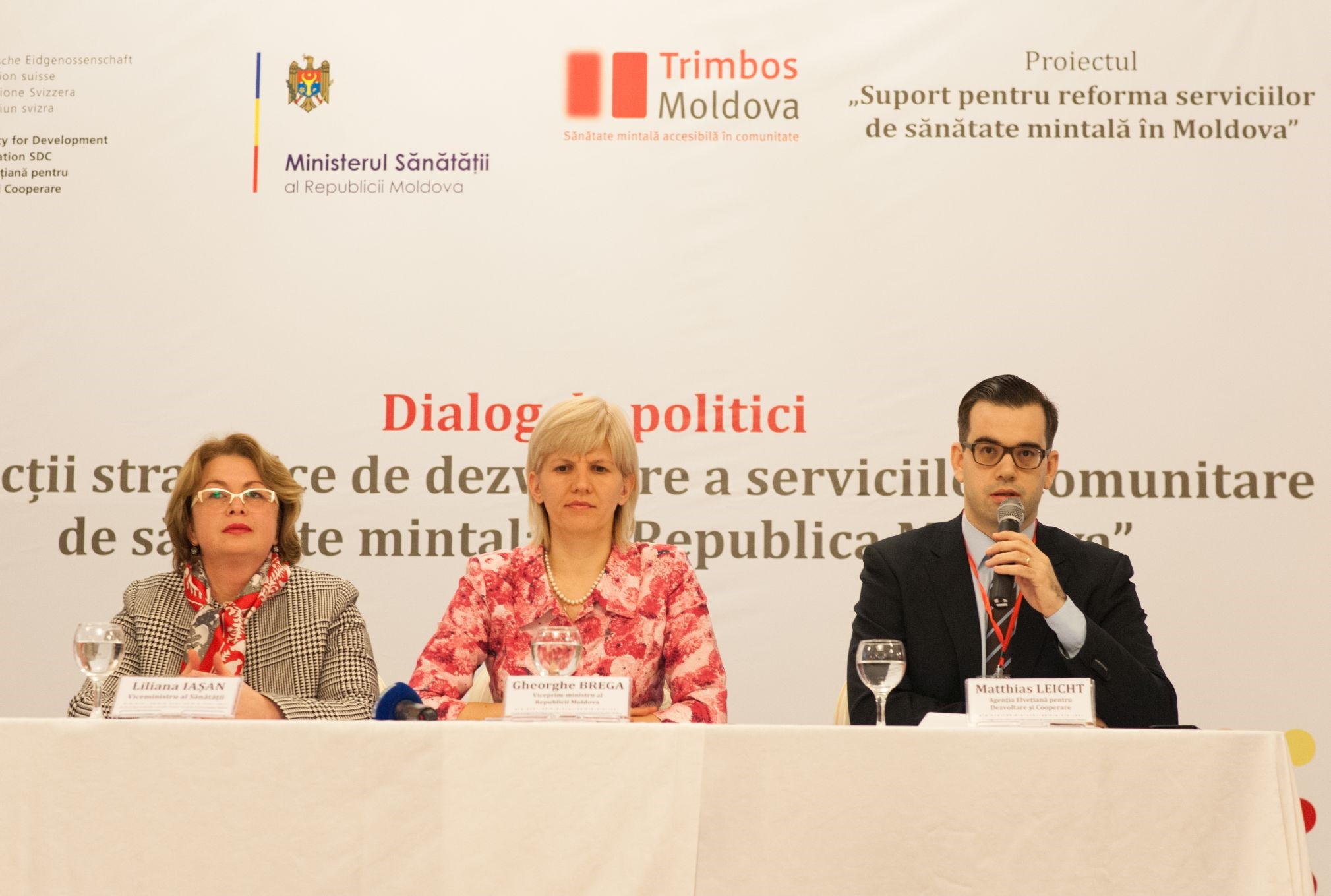 
| At the end of December 2016, strategic development priorities of community mental health services in Moldova were presented and discussed in the country’s first national policy dialogue on the topic. The event took place in the frame of the SDC project “MENSANA – Support for the Reform of Mental Health Services in Moldova”. A greatly-needed policy dialogue discussion platform devoted to the state of the Moldovan mental health system and the ongoing reform was launched in December 2016. Its aim is to advance the actual implementation of mental health system reforms and to ensure effective enjoyment of community mental health services by all citizens who need them. Ms. Liliana Iasan, deputy minister of Health, presented the National Mental Health Program for the years 2017–2021. The document confirms that the country’s priority is to develop integrated mental health services of high quality and accessible care in communities, with full respect of patients’ human rights. After several rounds of presentations and debates, the participants came up with a commonly-shared vision on a well-developed national network of coordinated community services for people with mental health problems. The inter-sectoral cooperation was found to be key to ensuring the delivery effective services and care. Therefore, in addition to psychiatrists, the network shall include trained nurses, social assistants, but also well-informed employers, and other community members who are the major contributors to patients’ full recovery and social inclusion. The participants agreed that the national policy dialogue would be followed by local meetings in four pilot districts of the MENSANA project during 2017. The aim of these events is to ensure that all relevant stakeholders in regions are committed to positive changes in the area, know their roles and are ready to participate effectively in the implementation of the mental health reform in their communities and districts. The project “MENSANA – Support for the Reform of Mental Health Services in Moldova” is financed by the Swiss Agency for Development and Cooperation (SDC) and implemented by Dutch TRIMBOS Institute for Mental Health and Addictions, in accordance with the reform needs set by the Ministry of Health of the Republic of Moldova. Contacts: matthias.leicht@eda.admin.ch and valeriu.sava@eda.admin.ch |
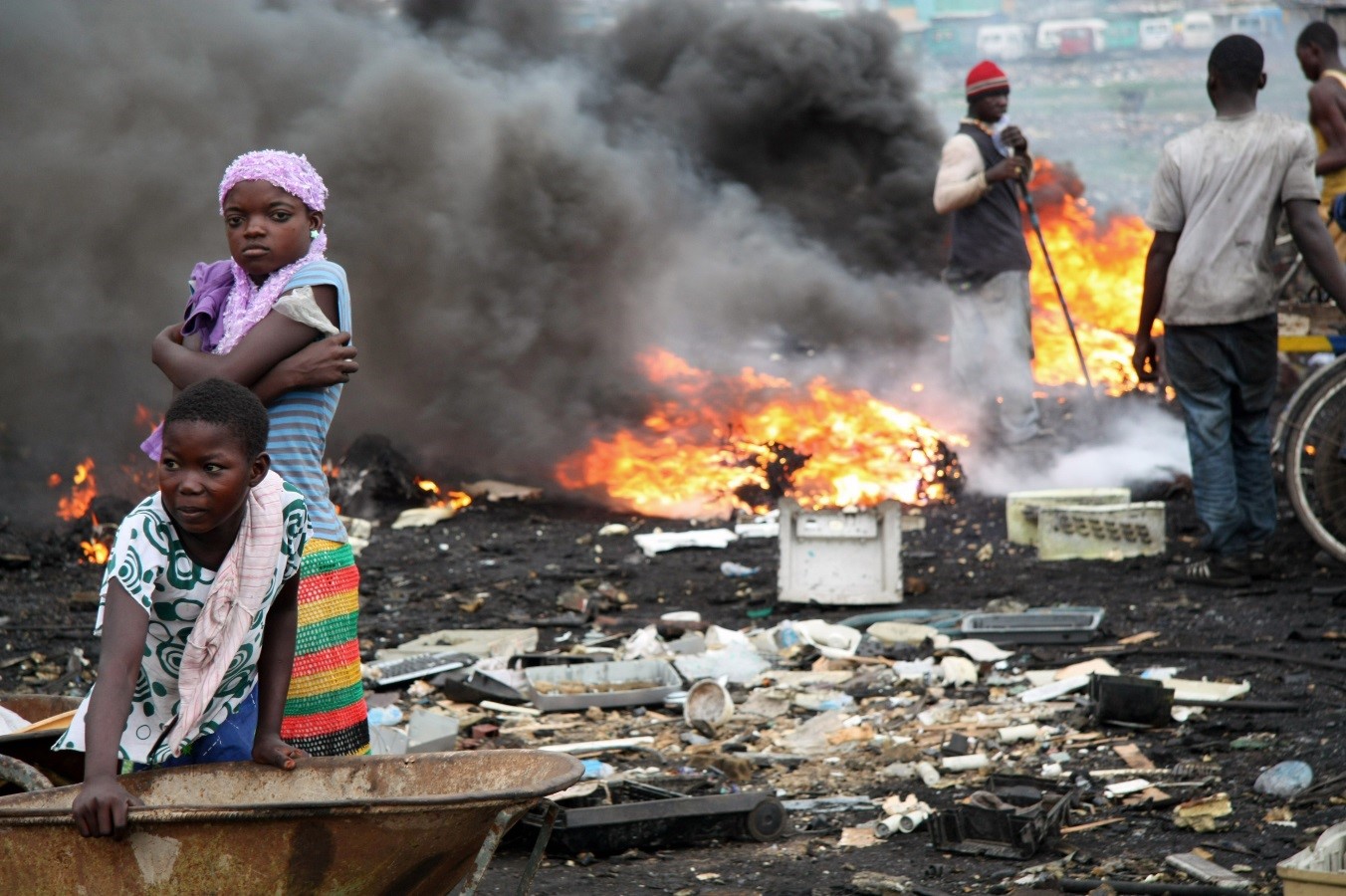 Source: Global Alliance on Health and Pollution Source: Global Alliance on Health and Pollution
| In health we are witnessing a major epidemiological shift. Infectious, parasitic and nutritional diseases linked to poverty such as malaria, pneumonia or water-borne diseases are decreasing worldwide. Major improvements with regard to the reduction of environmental risks through improved access to safe drinking water and household sanitation, but also through preventive interventions such as vaccines, mosquito nets, and effective therapies have been achieved in the frame of the Millennium Development Goals. However, an increasing burden of non-communicable diseases (NCDs) is gradually off-setting those gains. Besides unhealthy eating habits and sedentary behaviors linked to globalized trade and commerce and urbanization, a phenomenon called “environmental risk transition” is driving this shift: household air and water pollution, the two traditional forms of pollution are decreasing, while modern forms of pollution, such as ambient air pollution and occupational, soil metals and chemical pollutions are gaining importance. This is particularly the case in rapidly industrializing low- and middle-income countries, where cities are growing, and where globalization, industrialization of agriculture, proliferation of pesticides, and toxic chemicals are driving forces. Environmental pollution has received little attention in international development assistance, also due to the lack of robust evidence on the impact of pollution on health. However, scientific knowledge and evidence has made enormous progress in the past decades, showing that a large fraction of the global burden of diseases – in particular in the global South – is due to environmental pollution, with air pollution ranking top. The number of reports that has been published in the past couple of months reflects the relevance of environmental effects on health, and they paint a disturbing picture: In February 2016, the Royal College of Physicians published with “Every breath we take: the lifelong impact of air pollution” a report that pointed to the inequitable effects of air pollution on the health of the most vulnerable in the UK. One month later, the World Health Organization (WHO) published its second edition of the report “Preventing disease through healthy environments: a global assessment of the burden of disease from environmental risks” showing that according to new estimates 12.6 million people died as a result of living or working in an unhealthy environment in 2012 – representing 23% of all deaths. The report revealed further that since its first edition published in 2002, NCDs attributable to environmental factors such as chronic obstructive pulmonary diseases, ischemic heart diseases, strokes, renal diseases, lung cancer and neurological degeneration have increased significantly, amounting to as much as 8.2 million of these deaths. In February 2017, the “State of Global Air 2017”, a new annual report and interactive website has been stating that air pollution is the leading environmental cause of death worldwide, with more than 4.2 million early deaths. Beginning of March 2017, WHO published its first report “Inheriting a Sustainable World: Atlas on Children’s Health and the Environment” revealing that every year, environmental risks – such as indoor and outdoor air pollution, second-hand smoke, unsafe water, lack of sanitation and inadequate hygiene – take the lives of 1.7 million children under 5 years. This is equivalent to 1 in 4 deaths of children under 5 years. Moreover, a report of the Lancet Commission on Pollution and Health is expected to be published in the first quarter of 2017 and to present previously unavailable burden of disease estimates resulting from exposures to pollution. This recent set of evidence shows that action is particularly needed for low- and middle-income countries which bear the greatest share of morbidity and deaths attributable to environmental risks. However, in many of these countries systems for mapping and tracking pollution related diseases have not yet been established and regulatory and legal frameworks are not conducive to take action in this regard. As the Lancet Commission highlights in a draft report, prevention of diseases caused by modern forms of pollution has not been a priority of governments nor of the global health community so far. Economic development has been at stake, for which pollution and health impacts were taken into account as an unavoidable price. The price is mainly being paid by the poorest and most vulnerable of the society. The increased attention on environmental health effects is also reflected at global policy level. Reacting to a resolution in 2015, the WHO presented last year at its Assembly a draft road map for an enhanced global response to the adverse health effects of air pollution in order “to enable the health sector, […] to take a leading role in raising awareness both of the impacts of air pollution on health and of opportunities for public health”. Moreover, in Europe advocacy and policy work is carried out in the frame of the WHO European Environment and Health Process (EHP) and the upcoming Ostrava Ministerial Declaration in June 2017, where also Switzerland is actively engaged. The fact that several SDG goals target environmental improvements, including a particular SDG target on pollution prevention (3.9) calling to “substantially reduce the number of deaths and illness from hazardous chemicals and air, water, and soil, metal and chemical pollution” might give some reason for optimism that more attention is attributed to it. The Lancet Commission report calls on international agencies to substantially increase the resources devoted to pollution, to help building up global data platforms for the monitoring; and to help building up national capacities of low and middle income countries in terms of national action plans and data systems to measure pollution. Contact: karin.gross@eda.admin.ch |
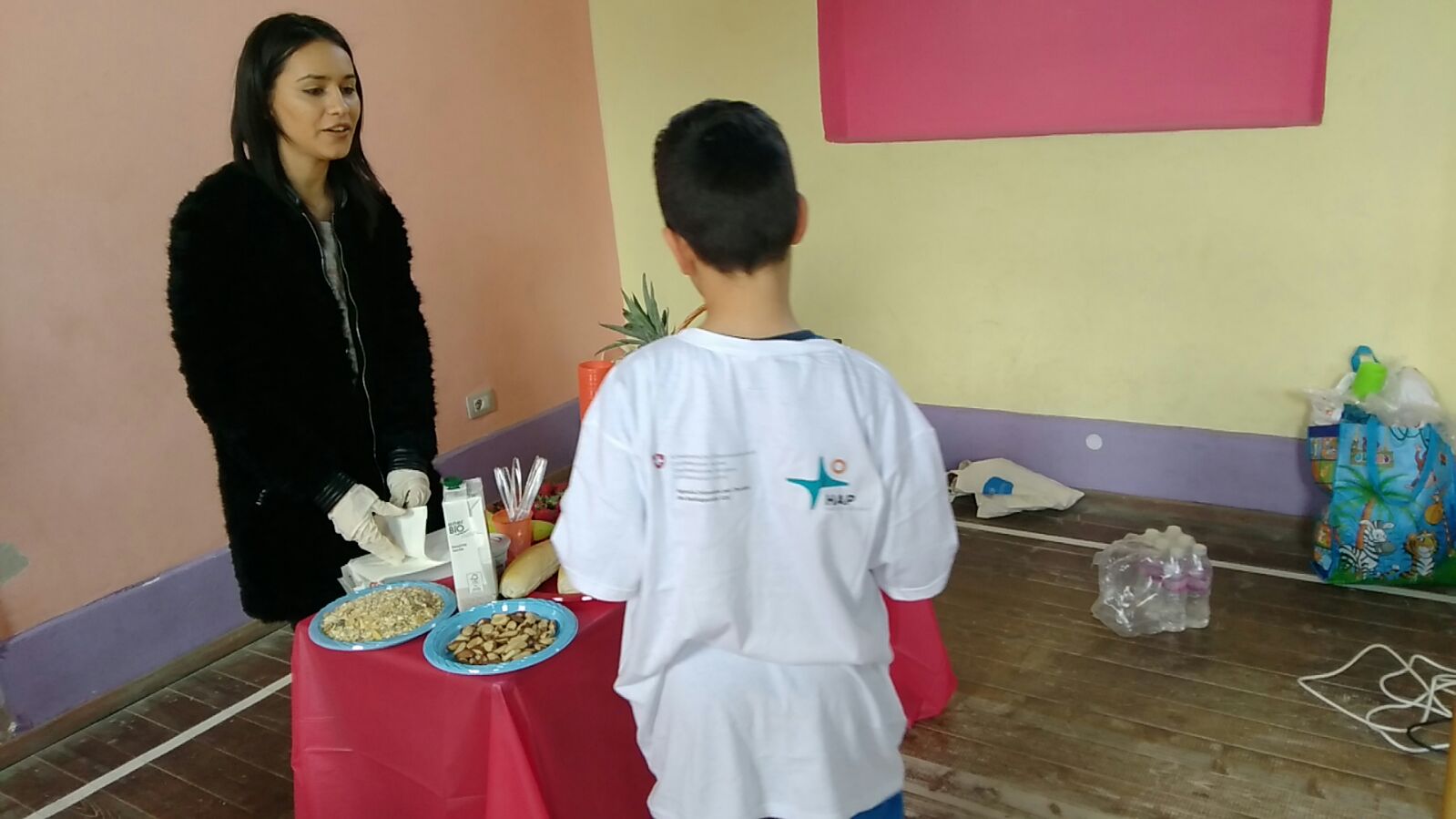 Healthy schools initiative
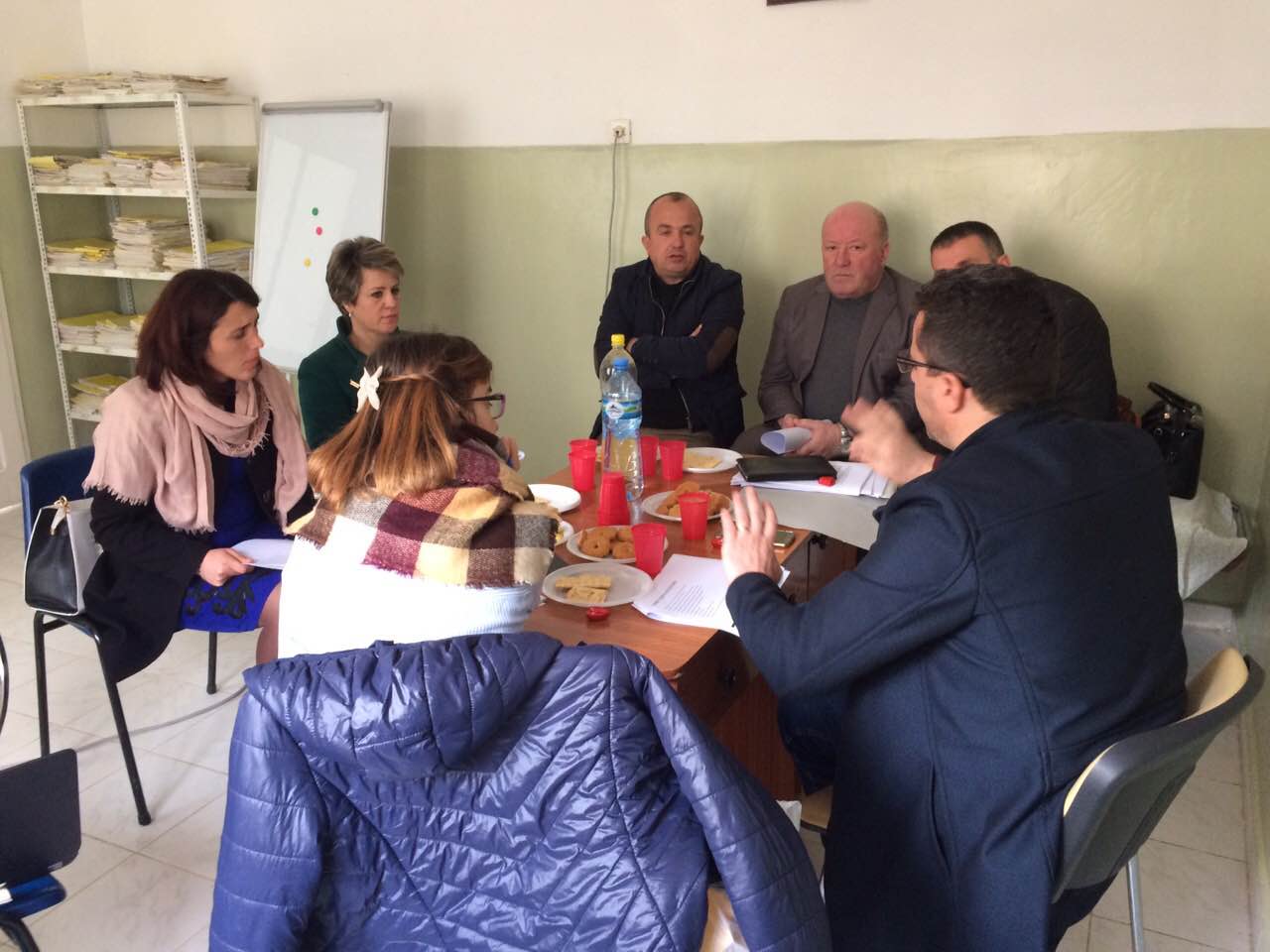
Key exchange platform for managers
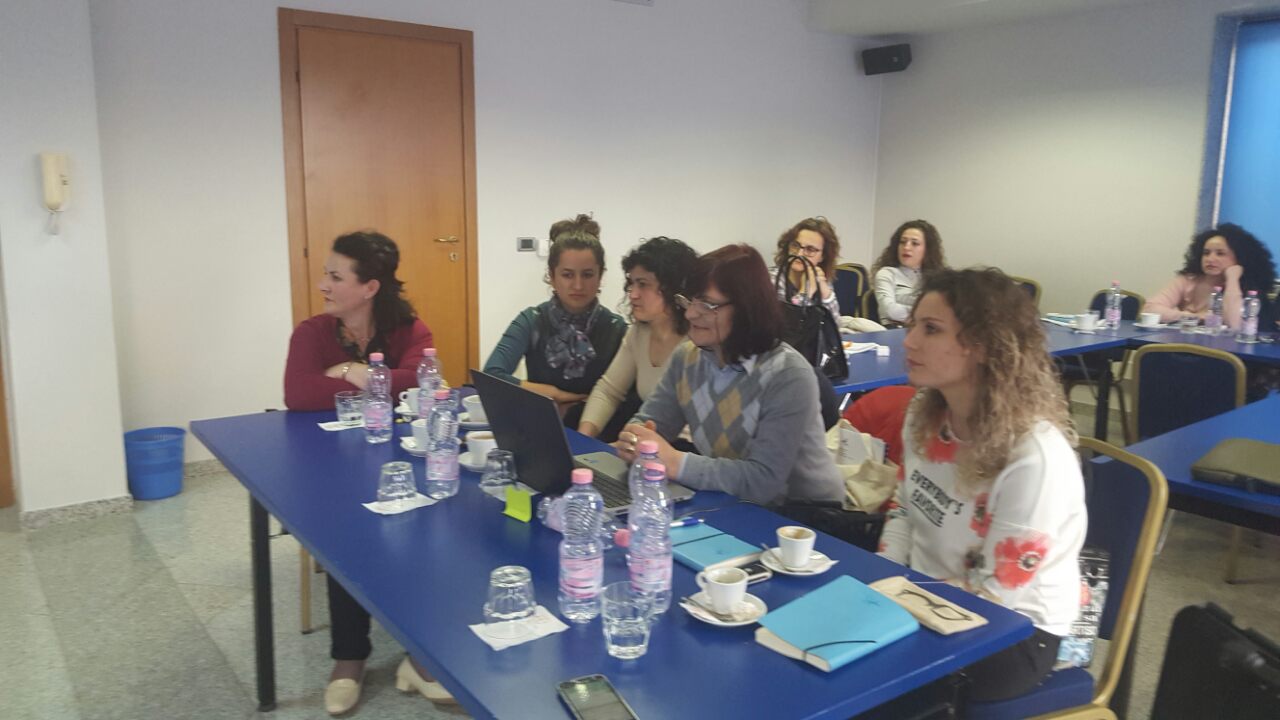
Workshop on inter-professional teams
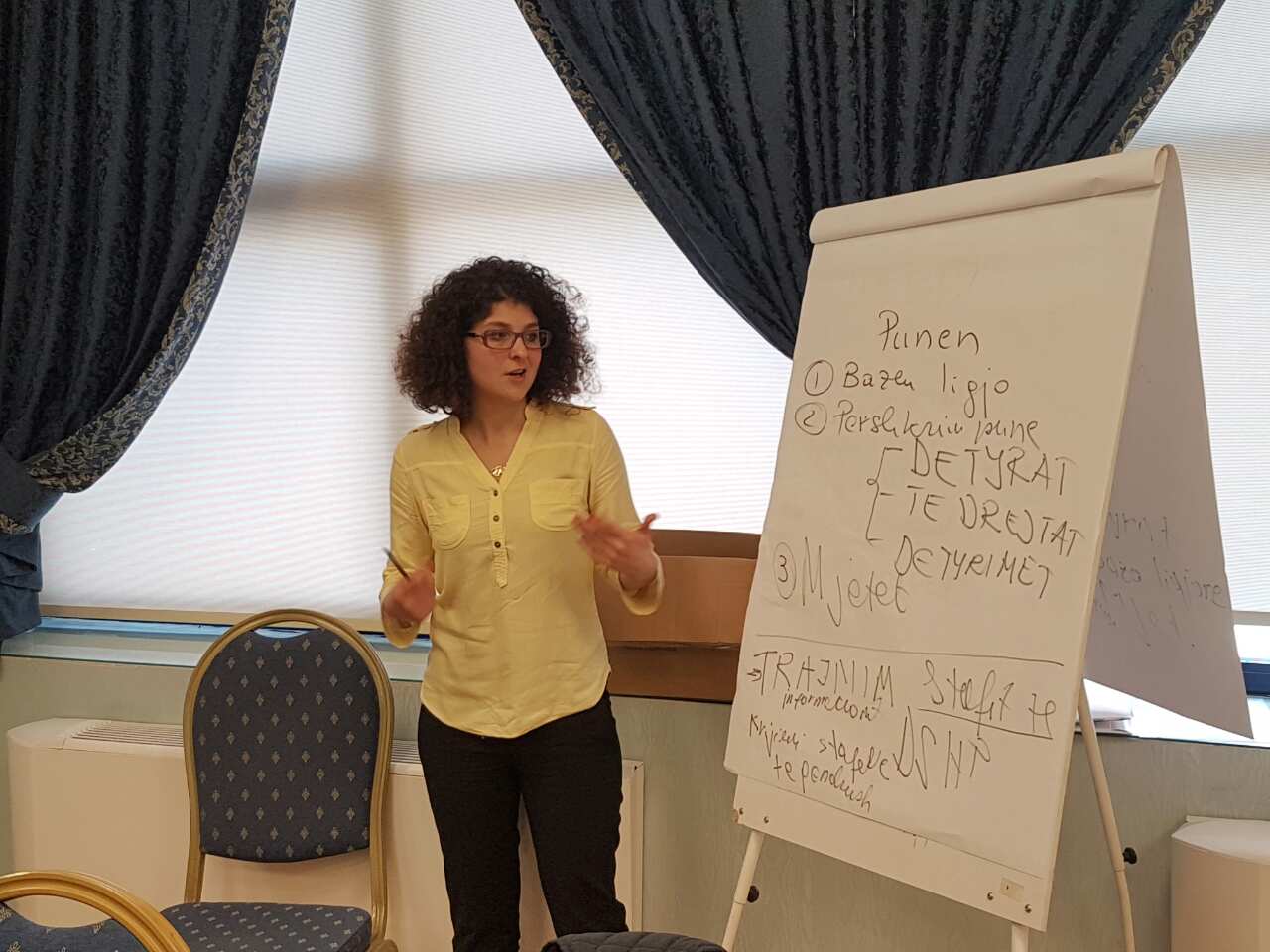
Workshop on M&E | Healthy Schools, a fit initiative for Albanian students A new initiative is promoting a healthy and active lifestyle to three local schools in the districts of Dibër and three in the district of Fier, Albania. Following a series of roundtables with representatives from communities in Burrel, Shupenzë, and Kastriot (Dibër district) and communities in Fier, Savër and Hekal (Fier district), Health for All Project (HAP) launched in late 2016 “Healthy Schools” to provide the students, parents and teachers of the six schools with healthy activities and focusing on health, wellness and nutrition education. The aim of the initiative is to create health promoting schools models by providing health education for students and health staff; engaging health and education officials, teachers, students, parents, health providers and community leaders in efforts to make the schools healthy places; promoting a safe, healthy environments, and encouraging school policies and practices that support health. In this initiative, HAP has taken a participatory health promotion approach. The implementation was trusted to two NGOs: Together for Life carried out the activities in Dibër, while Association of Phychosocial Rehabilitation Albania (APRA) was in charge of activities in Fier. The activities were designed after a series of roundtables with students, parents, teachers, health promotion specialists and other members of the communities;all of the aforementioned were part of the Healthy Schools activities. Important players in this initiative were the local Health Promotion Cabinets, which provided a much appreciated guidance and assistance. Speaking on the significance of the Healthy Schools initiative, HAP health promotion officer, Dr. Ilir Topi,restated project’s support for programs that create health promoting schools models. “Albania is a country with a high percentage of young people therefore it is very important to focus on these kind of interventions.” said Dr. Topi. Which schools were part of the initiative?
In the district of Dibër the focus was on high school students, 15-18 years old. The three selected schools were: “Pjeter Budi” (Burrel), “Rifat Manjani” (Shupenzë), and “Gjergj Kastrioti” (Kastriot).
In the district of Fier, the focus was on middle school students, 10-15 years old : “Azem Quka” (Savër) “Andon Xoxa” (Fier) and “Hekal Dervishi” (Hekal) What kind of activities did the initiative include? The students, parents and teachers participated in various physical and mental health activities, from health and wellness education classes, to education on good nutrition, to physical activity competitions, to volunteer groups formed by students that cleaned and protect the school environment. Health for All Project creates an exchange platform for managers for health centers In 2016, for the first time ever, the Forum of Managers were introduced as a key platform for exchange, discovery, discussion, collaboration, coordination and planning of management issues within the primary healthcare sector. The first forums were established in Fier (2), Burrel (1) and Dibër (1) in January 2016; Lushnja followed suit by establishing its forum in March, and in June Mallakastra too had a forum. As of March 2017, there are 7 forums in both Dibër and Fier Districts, with 80% of the HC managers enrolled in them. They offer a common space to share positive experiences and common concerns regarding planning, implementation and monitoring of healthcare services. The establishment, and the growing success, of the Forums of Managers was also noted by the National Center for Continuing Medical Education, which accredited the activities of the forums as continued education. Even though the forums were created just over a year ago, they already have marked a few encouraging achievements, such as the reviewing of the service contract between HC and the Health Insurance Fund; the planning of doctor’s visit for the chronic patients and the involvement of the community in the planning of activities. HAP has been the (pushing) force behind the Forum of Managers, by strengthening the capacities of facilitators and members of the forum through different trainings, by providing equipment and materials for the Forums, and by offering opportunities for exchange of experiences between them. HAP organised workshops on inter-professional teams in primary healthcare “Inter-professional teams in primary healthcare” was the theme of the one and a half day participatory workshops organised by Health for All Project in Fier and Dibër in March. Participants in these workshops were Primary Health Center teams composed of managers, family doctors, family nurses and health post nurses, who work in 5 Health Centers (HC) in Dibër and in 4 HCs in Fier regions. Two international experts on nurse education from the Institute of Nursing Science, Basel University, Morag Henry and Greet Van Malderen coordinate the workshops. The two workshops succeeded in raising awareness and better understanding of patient centered care, health promotion, illness prevention, and potential roles of nurses in interdisciplinary Primary Health Care teams. A Workshop for strengthening Monitoring & Evaluation and Statistics Units On 27 and 28 of February, Health for All Project organized in Tirana a two-day workshop on Strengthening the Monitoring and Evaluation (M&E) and Statistics Sectors at the Directorates of Public Health (DPH) and at the Regional Directorates of the Health Insurance Fund in Dibër and Fier regions. Participants in this workshop were statisticians and M&E offices in those institutions. The workshop focused on key definitions of M&E and Statistics; tasks and responsibilities of each sector; data management in compliance with the National Health Care Strategy, as well as data collection, processing and analysis. Participants in the workshop said that they gained useful knowledge for their daily jobs. Project
contact: ina.xhani@hap.org.al, SDC contact: sokol.haxhiu@eda.admin.ch
|
